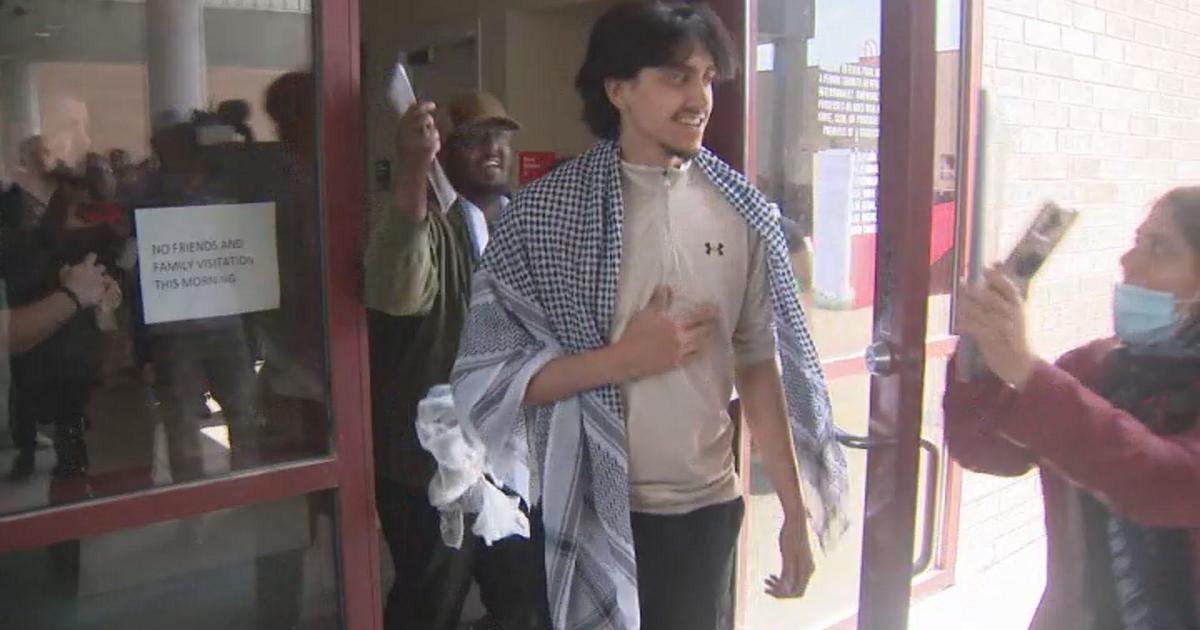Giving Tuesday: CBS 11 I-Team Digs Into Where Money You Give To Charities Goes
DALLAS (CBSDFW.COM) - Giving Tuesday is all about gratitude, but the CBS 11 I-Team shares examples of why you need to give with not just your heart, but your head.
In recent years, according to a case filed by the Federal Trade Commission, a charity called Help the Vets told donors "Your 10-dollar gift will mean so much to a disabled veteran…"; however, according to the FTC complaint "95% (of donations)…were spent on fundraising, administrative expenses and salaries."
A law firm representing Help the Vets would not comment on the accusations.
In another case, the FTC states Cancer Fund of America, Incorporated "took in millions…but spent it on themselves and their fundraisers."
An attorney who represented Cancer Fund of America told the I-Team, "CFA denied the allegation made by the FTC in the lawsuit."
And, just this year, Associated Community Services became one of many companies permanently prohibited from fundraising.
An FTC complaint states the defendants knew the charities they promoted were keeping "as much as 90 cents of every dollar solicited."
An attorney representing Associated Community Services sent the I-Team a statement: "ACS denies the allegations that were made against it, and it did not admit any wrongdoing in settling this matter involving actions from many years ago. ACS simply did not have the resources to defend against the government here."
In press releases, the Federal Trade Commission states "Giving Tuesday is a great time to show your gratitude by donating to help others. But you don't want to give money to a fake charity or scammer (any day of the week)."
"Whether you're donating a car or boat, or giving money, or even just canned goods, you have to be really careful that the organizations that you are giving to are legitimate businesses and there's ways to check on these things," says Attorney Jim Elliott, Assistant Regional Director, Federal Trade Commission, Southwest Regional.
The FTC just released an alert titled "How To Donate Safely This Giving Tuesday."
Federal agents say you need to slow down. Don't be pressured into giving- particularly over the phone.
Know who is making the request. Watch for crooks using names similar to well-known charities.
And most importantly- research the cause.
The FTC recommends going to Charity Watch.
The watchdog website rates charities.
It was founded in 1992 when there was no place to research them. "…now we have the opposite problem" says Executive Director Laurie Styron, Executive Director.
"Now there is almost too much information out there about charities and a lot of it is unfortunately, from industry and trade associations or from the charities themselves."
Styron says don't be afraid to ask questions:
--Who are you?
--What portion of my donation will be used on the program I want to support?
Charity Watch's website contains the financial statements of hundreds of charities. You can look up the percentage an organization reports spending on administrative fees and overhead.
"So generally speaking, highly efficient nonprofits are able to spend at the 75% of their budgets on programs and keep their overhead down to at least 25% or less," explains Styron.
Chief Relationship Office for Charity Navigator Kevin Scally agrees.
"We typically recommend that folks look for 70% or more that's actually going towards the programs and the rest of that goes towards fundraising and overhead," says Scally.
The FTC is also recommending you search the Charity Navigator.
It uses metrics to apply point values for an overall charity rating.
"You can look at their financial rating, and…feel good about donating if it's a passing score for us," says Scally.
Charity Navigator also warns you of organizations that have either confirmed or reported misconduct.
"One would be Central Coast Kids…focused on assisting children with special needs, " says Scally. "The founder and director was actually sent to prison for 40 years for tax evasion, embezzlement, submitting false invoices."
Before donating, you should also check with the Better Business Bureau.
And…
--Type in the name of the charity along with the words "scam," "warning," or "fraud" on a search engine.
Also remember…
--Always pay by credit card or check- not cash.
--Follow up and review your records to make sure the charge is correct.
--And finally, be aware of scammer's tricks. Watch your caller ID. Crooks may change the call number to appear local. Or, they may act as though you've donated to them before.
--If you are giving to a charity based in another state, go to the state's online charity verification site. This is typically regulated by the Attorney General's Office or the Secretary of State. You should find public filings and tax returns there.
But be aware, in Texas, we do not have that. Most charities based here are not required to register with the state.
Tis the season to avoid scams!
"These organizations are out there," says Elliott. "They want to take that money out of your pocket. They will say anything to get that done."
To file a report or complaint about a charity, click here.



